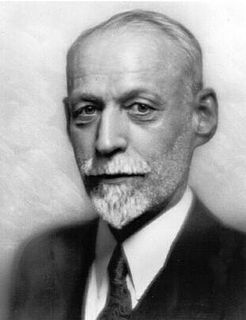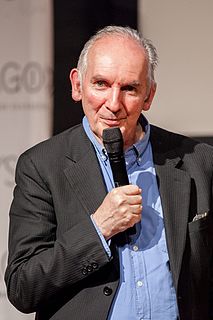A Quote by Robert Kennedy
American books reflect our common heritage with many other nations and their influence upon our culture. The influences are endless, linking us with the rest of the world. Thus, they are good ambassadors for us.
Related Quotes
The foreign audiences are somewhat surprised and happy to find an American film that asks questions about American culture. There's a certain kind of cultural imperialism that we practice. Our films penetrate every market in the world. I have seen and have had people reflect to me, maybe not in so many words or specifically, but I get the subtext of it - they're somewhat charmed and surprised and happy to see an American film reflect on our culture. Because they see other cultures reflect on our culture but they don't see US culture reflecting on itself in quite the same way.
The arts have long been an integral and vibrant part of our nation's cultural heritage. In its many forms, art enables us to gain a deeper understanding of ourselves and of our society. Providing us with a unique way to learn about people of other cultures, it allows us to discover all that we have in common. At its best, art can beautify our cities, encourage economic development and social change, and profoundly affect the ways we live our lives.
This country of ours has more wealth than any nation, but that's not what makes us rich. We have the most powerful military on Earth, but that's not what makes us strong. Our universities and our culture are the envy of the world, but that's not what keeps the world coming to our shores. Instead, it is that American spirit - that American promise - that pushes us forward even when the path is uncertain; that binds us together in spite of our differences; that makes us fix our eye not on what is seen, but what is unseen, that better place around the bend.
We are thankful for these and all the good things of life. We recognize that they are a part of our common heritage and come to us through the efforts of our brothers and sisters the world over. What we desire for ourselves, we wish for all. To this end, may we take our share in the world's work and the world's struggles.
Love is at once the most creative and yet simultaneously destructive force in the world, and thus, in our lives. And I don't mean the Hallmark sentimental type of love, although that is part of it. But a deeper obligation that we have to each other: the obligation to reflect our humanness at each other, to reflect back the things others show us and we, them.
Books may not change our suffering, books may not protect us from evil, books may not tell us what is good or what is beautiful, and they will certainly not shield us from the common fate of the grave. But books grant us myriad possibilities: the possibility of change, the possibility of illumination.
The power of both myth and art is this magical ability to open doors, to make connections - not only between us and the natural world, but between us and the rest of humanity. Myths show us what we have in common with every other human being, no matter what culture we come from, no matter what century we live in. . .and at the same time, mythic stories and art celebrate our essential differences.
With a full century of contrary proof in our possession and despite our demonstrated capacity for cooperative teamwork, some among us seem to accept the shibboleth of an unbridgeable gap between those who hire and those who are employed. We miserably fail to challenge the lie that what is good for management is necessarily bad for labor; that for one side to profit, the other must be depressed. Such distorted doctrine is false and foreign to the American scene where common ideals and purpose permit us a common approach toward the common good.
The 'nations,' as they are called, with whom our pretended ambassadors, secretaries, presidents, and senators profess to make treaties, are as much myths as our own. On general principles of law and reason, there are no such 'nations.' ... Our pretended treaties, then, being made with no legitimate or bona fide nations, or representatives of nations, and being made, on our part, by persons who have no legitimate authority to act for us, have intrinsically no more validity than a pretended treaty made by the Man in the Moon with the king of the Pleiades.
A large part of our attitude toward things is conditioned by opinions and emotions which we unconsciously absorb as children from our environment. In other words, it is tradition—besides inherited aptitudes and qualities—which makes us what we are. We but rarely reflect how relatively small as compared with the powerful influence of tradition is the influence of our conscious thought upon our conduct and convictions.
That was a pretty fine Army that we had in 1965. By 1973, it was in tatters. It was a disgrace to the country and to itself, to its own heritage, really. So it's, you know, the Army belongs to all 307 million of us. It is our common possession, it's our common heritage. As goes the Army, so goes the republic.
































